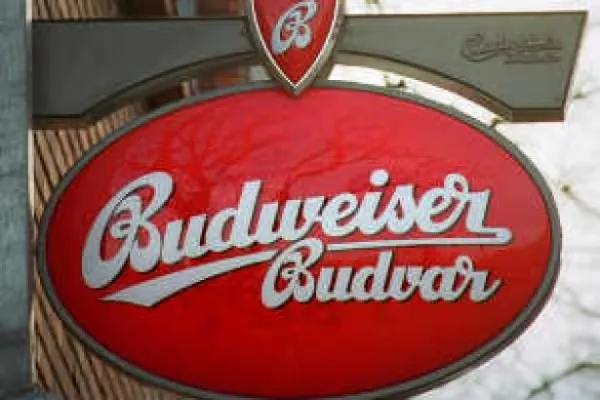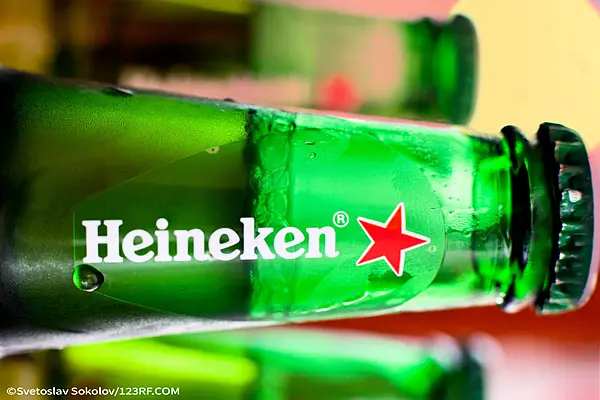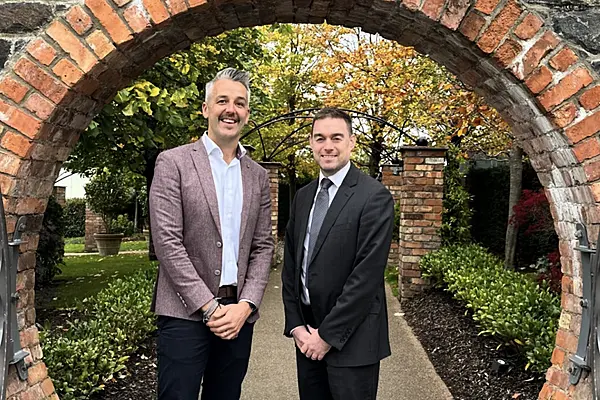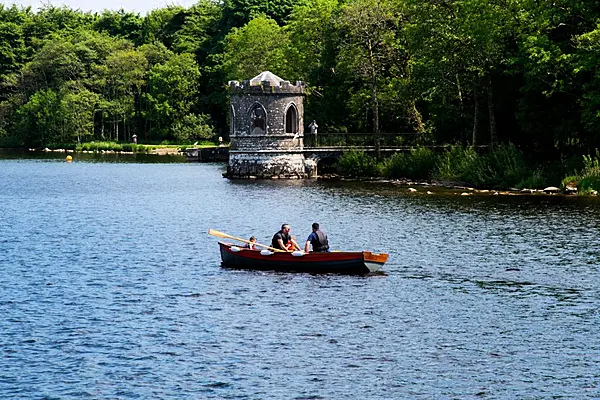AB InBev may have finalized its $107 billion marriage proposal to SABMiller, but the giant brewer has never stopped thinking about the one that got away.
In Ceske Budejovice, a town of 93,000 nestled among the rolling hills of the southern Czech Republic, there’s a state owned brewery called Budejovicky Budvar. Given that the town is called Budweis in the native German of most of its residents in the 19th century, the company’s beer is often known as Budweiser.
That name has obvious appeal to the makers of the top-selling American beer, now controlled by InBev. For more than a century, the two sides have engaged in a legal tussle over the rights to the name, and at various times over the past couple of decades the Americans have sought to buy the Czech brewer. Currently, Budvar says there are active court battles in about a dozen countries, with simmering disputes in another 25 or so.
"The lawsuits are exhausting in terms of both time and money,” says Jiri Bocek, the Czech brewer’s chief executive officer since 1991, who keeps a half-dozen bottles of American Budweiser on display in his office as a reminder of the dispute. “We would be happy to avoid them.”
InBev declined to comment on Bocek’s assertions, but said it has ambitious plans to expand Budweiser globally, especially in Asia.
Despite the continuing legal hassles, Bocek says he expects the InBev-SAB deal to help Budvar gain at least a bit of ground on its giant rival. Bocek, who served as an assistant brewer before working his way to the top, says consolidation will make global mega-brands so indistinguishable that consumers will seek smaller niche beers with tradition, such as his.
Mississippi Brewery
“We see this mega-merger as an opportunity,’’ says Bocek, who likens his company to “a large craft brewer.’’
Ceske Budejovice has been home to breweries since the 13th century, and Bocek’s company began using the Budweiser name in 1895. The company that would become Anheuser-Busch started brewing on the banks of the Mississippi in 1852, and in 1876 registered Budweiser as a trademark, though it had no connection to the Czech town or any other place called Budweis.
For most of the 20th century, the two Budweisers coexisted based on agreements from 1911 and 1939, which gave the St. Louis crew the rights to use the Budweiser trademark in North America and the Czechs most of Europe. But since those pacts were signed, Budvar has grown only modestly while Anheuser-Busch expanded from a local St. Louis beermaker to a global powerhouse, which Belgium’s Inbev acquired in 2008 to create the world’s largest brewer. Budvar’s output today is about 0.3 per cent of InBev’s.
Like other large private enterprises in Czechoslovakia, Budvar was nationalised after the communists seized power in 1948. The company focused on exports as a source of much-needed hard currency for the centrally planned economy, and by the time communism collapsed in 1989, Budvar’s brand was well established abroad, especially in eastern Europe. After the borders opened, Budvar started looking for more markets.
That didn’t sit well with Anheuser-Busch. The Czech government - which never privatised the company, unlike most of the scores of other breweries in the country - rebuffed the Americans’ attempts to buy the brewery or the brand. So the US giant launched a series of court actions to prevent Budvar from using the Budweiser brand in various markets around the world, and eventually bought a smaller brewery in Ceske Budejovice to bolster its claim to the Budweiser name.
Barley Malt
Two decades and many millions of dollars in legal fees later, the results are inconclusive. InBev still rules North America, so Budvar has to call its beer there Czechvar, which sells for about twice the price of the American version. In Europe the Americans can use the Budweiser brand only in France, Spain and a handful of other places. The Czechs get to call their beer Budweiser in Germany, Austria and Italy, and across eastern Europe and Russia.
The UK is a special case: both companies are allowed to use the name. According to a 2011 ruling, the two products are so distinct that consumers can tell the difference. InBev called that decision “not the right solution” because parallel brand names are confusing.
The ongoing conflict, while a distraction, may also have paid off for Budvar, says Lukas Lorenc, a partner at Cermak & spol., a Prague law firm that handles the trademark battle. Without it, the company would be just another small Czech brewer seeking to build its brand abroad.
“Budvar is definitely profiting from free publicity thanks to the fact that media pay attention to the trademark dispute,’’ Lorenc says, sliding the door of a wall-to-wall cabinet to reveal shelves stacked from floor to ceiling with files on the case. “It certainly keeps us busy.’’
Bocek remains optimistic, saying the brewer has increased output by 17 per cent and pre-tax profit by 40 per cent in the past five years. Touring the grounds of the brewery, redolent with the sweet smell of barley malt and the bitter scent of hops, he says production is running flat out. He points to an area of warehouses, which he says will be razed to make room for an expansion to boost capacity by about 15 per cent.
"Both sides know that it’s above all a fight for territory," Bocek says. “We’re not happy to be embroiled in these lawsuits, but they’re not keeping us from expanding.’’
News by Bloomberg, edited by ESM. To subscribe to ESM: The European Supermarket Magazine, click here.









